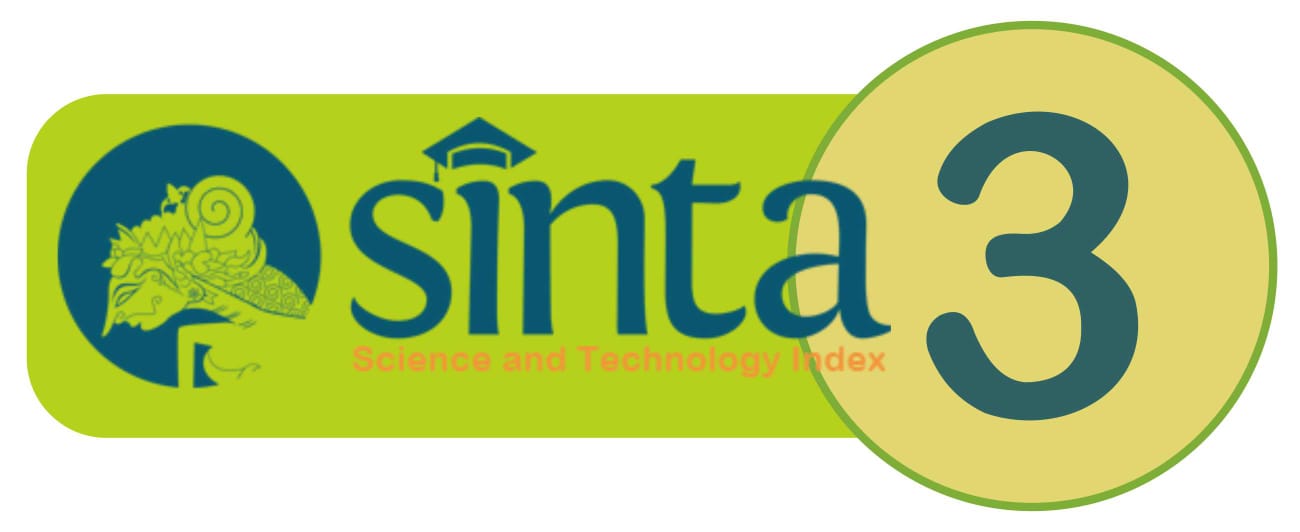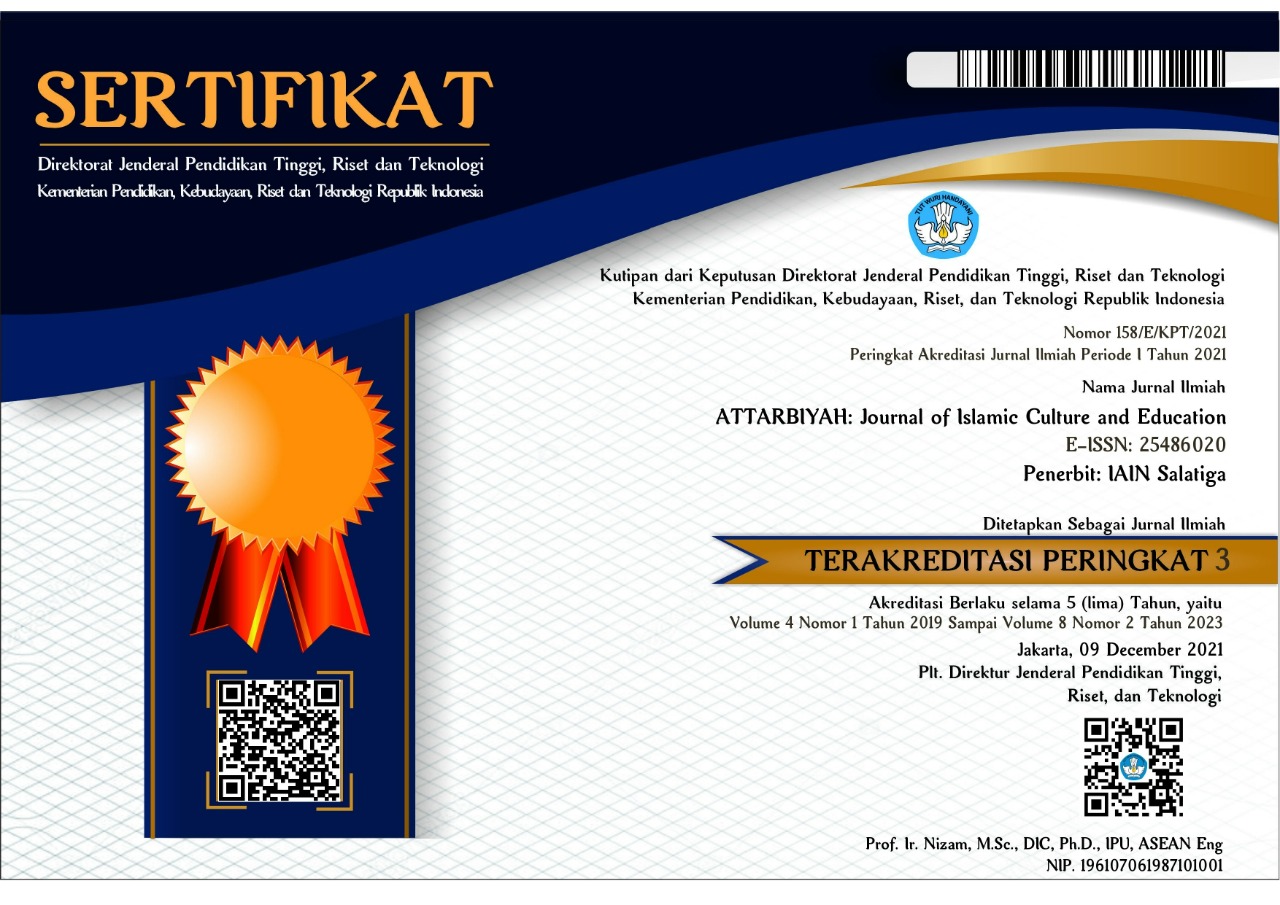The effectiveness of community service program in developing social competence and personality competence for Islamic teacher training students
Abstract
documentation. The results of the study explained that social competence during the Community Service Program (KKN) as a whole shows the development. On the personal competence of PAI students during the
Community Service Program (KKN) shows most of the progress. This is evidenced by the suitability of field data with indicators of personality competence, including (1) Steady and stable personality; (2) Adult
personality; (3) Wise personality; (4) Authoritative Personality; and (5) Personality that reflects noble character. Based on the findings of researchers, there are student who have not shown progress on these four
indicators. As for factors that affect the development of students’ personalities PAI, including internal factors in the form of motivation in the activities of the Community Service Program (KKN), and external
factors such as environment.
Keywords
Full Text:
PDFReferences
Ahmad, F., et. al. (1997). Pedoman Pelaksanaan Kuliah Kerja Nyata (KKN). Jakarta: Rineka Cipta.
Ali, M. (2017). Komunikasi Antarbudaya dalam Tradisi Agama Jawa. Pustaka Ilmu: Yogyakarta.
Aw, S. (2011). Komunikasi Interpersonal. Yogyakarta: Graha Ilmu.
Bachtiar, W. (2006). Sosiologi Klasik. Bandung: PT Remaja Rosdakarya.
Baidhawy, Z. (2005). Pendidikan Agama Berwawasan Multikultural. Jakarta: Erlangga.
Gunawan, A. H. (2000). Sosiologi Pendidikan. Jakarta: Rineka Cipta.
Hidayatullah, M. F. (2009). Guru Sejati: Membangun Insan Berkarakter Kuat dan Cerdas. Surakarta: Yuma Pustaka.
Kemendiknas. (2006). Undang-undang Guru dan Dosen (UU RI Nomor 14 tahun 2005). Jakarta: Redaksi Sinar Grafika.
Lembaga Penelitian dan Pengabdian Masyarakat. (2017). Buku Pedoman Kuliah Kerja Nyata (KKN) Tematik Posdaya Berbasis Masjid Universitas Islam Negeri (UIN) Walisongo Angkatan ke-68 Tahun 2017.
Munir, A. (2010). Super Teacher: Sosok Guru yang dihormati, disegani, dan dicintai. Yogyakarta: Pedagogia.
Mustopa. (2014). Akhlak Mulia dalam Pandangan Masyarakat. Jurnal Pendidikan Islam (Nadwa), 8 (2), 261-280.
Moelong, L. (2011). Metode Penelitian Kualitatif. Bandung: Remaja Rosda Karya.
Nasehudin. (2015). “Mengembangkan Kecerdasan Sosial dalam Proses Pendidikan”. Jurnal Pendidikan Sosial & Ekonomi (Edueksos), 4 (2).
Nurdin, M. (2010). Kiat Menjadi Guru Profesional. Yogyakarta: Ar-ruzz media.
Rachman, U. (2003). Undang-undang Republik Indonesia Nomor 20 Tahun 2003 tentang Sistem Pendidikan Nasional. Jakarta: PT. Kloang Klede Putra Timur bekerjasama dengan Koperasi Primer Praja Mukti I Departemen Dalam Negeri.
Roqib, M. & Nurfuadi. (2009). Kepribadian Guru. Yogyakarta: Grafindo Litera Media.
Sugiyono. (2012). Metode Penelitian Pendidikan Pendekatan Kuantitatif, Kualitatif, dan R & D. Bandung: Alfabeta.
Tim Penyusun Kamus Pusat Bahasa. (2007). Kamus Besar Bahasa Indonesia. Jakarta: Balai Pustaka.
DOI: https://doi.org/10.18326/attarbiyah.v3i1.25-45
Refbacks
- There are currently no refbacks.

ATTARBIYAH: Journal of Islamic Culture and Education by http://attarbiyah.iainsalatiga.ac.id/ is licensed under a Creative Commons Attribution-ShareAlike 4.0 International License
----------------------------------------------------------
ATTARBIYAH : Journal of Islamic Culture and Education IAIN SALATIGA p-ISSN: 0215-9996, e-ISSN: 2548-6020



